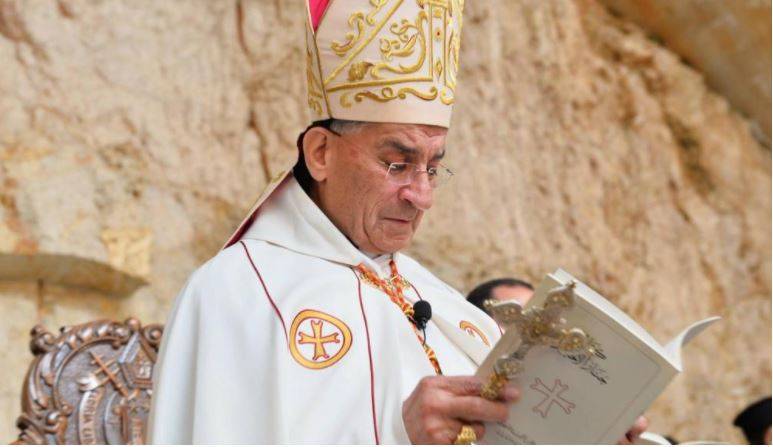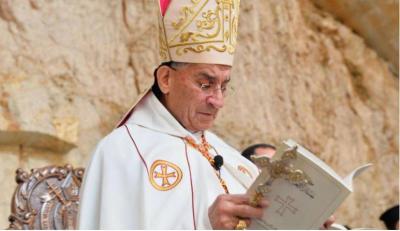The newspaper "Asharq Al-Awsat" reported that Maronite Patriarch Bechara Al-Rai criticized the "politicization" of the Lebanese judiciary, speaking about "fabricated accusations and politicized selective lawsuits" and the exploitation of "some judges by the authorities." While warning that the goal might be to cancel the parliamentary elections, he expressed hope that the next President of the Republic would undertake the task of reviving the country and pulling it from factions to neutrality. He also rejected the infringement on freedom of expression and the transition of the country into an authoritarian police state reminiscent of bygone totalitarian regimes.
In his Sunday sermon, Al-Rai addressed the political officials: "What are you doing, political leaders, whether in power or out? Will the night of crises, strife, and grudges ever clear? Will the night of collapse, border chaos, customs revenues from the airport and ports, taxes, invoices, and security breakdowns ever clear? Will the night of poverty, hunger, and unemployment ever clear? Will the night of selective, vengeful, electoral, and politicized judiciary, with pre-arranged files, ever clear? Will the night of fabricating accusations and lawsuits while ignoring glaring ones ever clear? Will the night of freezing the investigation into the Beirut Port blast ever clear? Will the night of stepping outside the state, legality, and army ever clear? Will the night of domination, falsehood, and the disruption of the constitution, system, and charter ever clear? Will the night of targeting essential institutions, banks, seizing depositors' funds, and undermining the free economy ever clear? Will the night of coloring everything with sectarianism and confessionalism ever clear? Will the night of obscuring the reality of Lebanon's political illness ever clear? Will the night of the concept of the state, with its components: land, people, and institutions, and its four functions—unity of organized strength, unity of diplomatic relations, unity of taxation and collection, and unity of public policy management—ever clear?"
Al-Rai continued, asking: "How long will you, officials and those involved in political affairs, persist in oppressing our people, preventing them from expressing themselves, complaining, opposing, and holding their heads high, while sabotaging solutions to wrap around Lebanon?" He emphasized that "the right to express one's opinion is inherent to human beings and is guaranteed by our constitution in Lebanon," warning against "infringing upon it and leading the country into an authoritarian police atmosphere akin to outdated totalitarian regimes. These repressive methods do not resemble Lebanon, which has spent its history defending freedoms; this is its message. Continuing the oppression lays the groundwork for a popular uprising whose extent and outcomes no one can predict."
He described the state of the judiciary in Lebanon as "sad and dangerous," questioning: "Where are the honorable judges? Where are the judicial authorities that do not fulfill their responsibilities to protect the judicial body? Where is the authority that does not deter itself from exploiting some judges and does not restrain those who encroach upon its role? Is the aim of some shocking measures to create a reality that leads to the postponement of the parliamentary elections and to place the blame for this national crime on those who truly wish for it? This constitutional entitlement must take place and be followed by the election of a new president two months before the end of the current president's term in accordance with Article 73 of the constitution. The new president should lift the country and pull it from factions to neutrality, putting an end to this collapse and devastation. Lebanon does not belong to a faction. It belongs to the people, history, and future."




